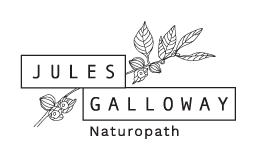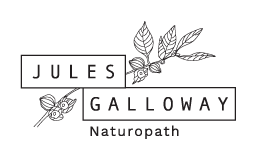HOW TO GET BY WITHOUT CODEINE – A NATUROPATH’S GUIDE TO CHRONIC PAIN
If you experience chronic pain, chances are that the news of the nation-wide codeine ban has you worried.
As of February 1st, Australians are no longer able to access over the counter pain relief medications containing codeine derivatives without a script from their GP.
This includes well known over the counter products like Nurofen Plus, Panadeine and Mersyndol – household names when it comes to pain relief for a wide range of conditions.
But before you freak out, panic-buy a stash, or start raiding your mum’s medicine cabinet, let’s take a step back and have a look at the bigger picture here. And that is – have you been using the medicines as a crutch to mask the symptoms, rather than addressing the underlying cause of your pain?
Of course, there are SOME types of chronic pain that may not be able to be solved. Injuries, advanced stages of diseases, even dental pain (while you’re waiting to have the tooth fixed) all come to mind – if you’re suffering from one of these, you might need the drugs to bring you some relief or to help you go about your everyday business. And that’s fine. Your GP will still be able to sort you out with a prescription.
But in this article I’m talking about PREVENTABLE pain. Pain that comes from a source that can be dealt with by diet, lifestyle changes, nutrition, bodywork or natural medicines.
Naturopaths are all about seeking out and dealing with the underlying cause of illness, instead of just masking the symptoms. While herbal medicine provides us with some excellent tools for acute pain and inflammation, naturopaths will never just provide pain relief and will always want to know why the pain is occurring and how we can fix it.
HERE ARE SOME COMMON TYPES OF PAIN AND SOME OF THEIR UNDERLYING CAUSES
PERIOD PAIN
Some mild discomfort or pain is normal during menstruation, but anything more than that usually means something is up. Period pain occurs when there is either an excess or deficiency in reproductive hormone levels. When seeing a naturopath, one of the first things they may do is test your hormone levels and then the focus will be on rebalancing these levels. Your practitioner will also make sure magnesium levels are optimal, address inflammation and perhaps give herbs to improve relieve cramps and improve muscular contraction of the uterus.
HEADACHES
Are you dehydrated? Is there a hormonal imbalance? Perhaps the headache is coming from muscular tension in the neck (and if that’s the case, we might look at magnesium, herbs and bodywork to relieve it). In many cases of headaches and brain fog, there may also be an underlying food intolerance that needs to be dealt with. We might also do some routine investigations to assess blood pressure, blood sugar levels and thyroid hormones.
MIGRAINES
The main categories for migraine headaches include musculoskeletal, neurological and vascular (relating to the health of blood vessels). When seeing a naturopath for migraines, your practitioner will ask lots of questions to determine which category you fit into and address each very differently, while always focusing on returning the body back to a natural pain-free state. In practice I’ve seen many migraines linked to food sensitivities, methylation issues (e.g. MTHFR), heavy metals, and hormone imbalances, to name just a few. It’s a complex issue but a skilled practitioner will do the detective work needed to find the source of the problem.
MUSCULOSKELETAL PAIN
Musculoskeletal conditions like arthritis massively contribute to disease burden in Australia. Pain and disability associated with arthritis is one of the most reported conditions to present to GPs. In naturopathy, management would be focused around addressing the cause of the problem, not just masking the pain. For example, an arthritis plan would focus on optimising joint health, healing joint damage, limiting the progress of degeneration and relieving pain. The earlier that we catch it the better, so don’t delay – see a practitioner before your cartilage wears away!
NATURAL ANTI-INFLAMMATORIES
With so much pain stemming from inflammation in the body, it’s important to consider WHY the inflammation is happening in the first place. Is the diet poor – i.e. full of processed foods, does it contain potential allergens, or is it too low in healthy, alkalising foods like green veggies? Are you exposed to chemicals at work? Is there a lot of stress in your life? Or perhaps your gut is not functioning correctly.
While we’re changing the diet and lifestyle, and doing the repair work to correct the underlying causes of inflammation, there are several potent anti-inflammatory herbs and supplements that we can prescribe.
Turmeric has become super popular recently as more and more research comes out about its anti-inflammatory properties. Unlike most other anti-inflammatory herbs, Turmeric has the ability to decrease a range of inflammatory mediators. Turmeric’s anti-inflammatory action has been shown in a range of health conditions but most particularly in osteoarthritis and rheumatoid arthritis. Clinical studies have even shown that Turmeric was more effective than non-steroidal anti-inflammatory medications in the treatment of rheumatoid arthritis.
Boswellia is another herb that does wonders in musculoskeletal conditions. The gum resin of the herb is extracted and has powerful anti-inflammatory, analgesic and anti-arthritic actions. Turmeric and Boswellia are often used in conjunction as Boswellia is better at providing acute relief while Turmeric can sometimes take a few weeks to kick in.
White Willow is one that needs to be mentioned as well, as this is the humble herb that aspirin is derived from. Its analgesic properties are proven to reduce pain in a number conditions.
Glucosamine and Chondroitin are often used in the treatment of musculoskeletal conditions as they are key building blocks of cartilage and supplementation can increase cartilage synthesis – again, addressing the cause of the pain, not just the pain.
Don’t forget about those good fats too. If you’re someone that has an inflammatory condition especially joint pain or stiffness, back pain or even menstrual pain, omega 3’s aid in reducing inflammation and relief pain by moderating inflammatory pathways. This can either be through a good quality fish oil supplement or just through diet. Foods high in omega 3’s include; oily fish (like mackerel, sardines & salmon), leafy greens, walnuts, flaxseeds and chia seeds. If you experience chronic pain, maintaining good amounts of these foods in your diet on top of other pain relief herbs or supplements would be highly recommended.
Although not an anti-inflammatory, magnesium is incredibly helpful in a range of cramping and tension related conditions including headaches, menstrual pain and pain associated with tight muscles. We also use up increased amounts of magnesium when we’re stressed. This often explains why we might have tight muscles after a full-on day, or a pounding headache after a busy week or even an unusually painful period after a particularly stressful month. This nutrient is definitely one to have on hand for this kind of emergencies.
DON’T PUT IT OFF ANY LONGER
If you want to find a more natural alternative to codeine that won’t just cover up the symptoms but actually treat the cause of your pain and inflammation, then get in touch with a good naturopath. Every patient that presents with pain is different, which means that everyone’s treatment plan will be different – with the ultimate goal being to have you not taking anything at all.
While this codeine ban is going to upset lots of Australians, I urge you to reframe this as a good thing. Take this as an opportunity to explore the reasons behind why you are in pain, and to seek out some long-lasting pain management techniques that don’t just make you forget the pain, but actually resolve the problem.
If you would like to read the full TGA media release and see the list of medications that are on the banned list, check out this link here: https://www.tga.gov.au/codeine-info-hub

